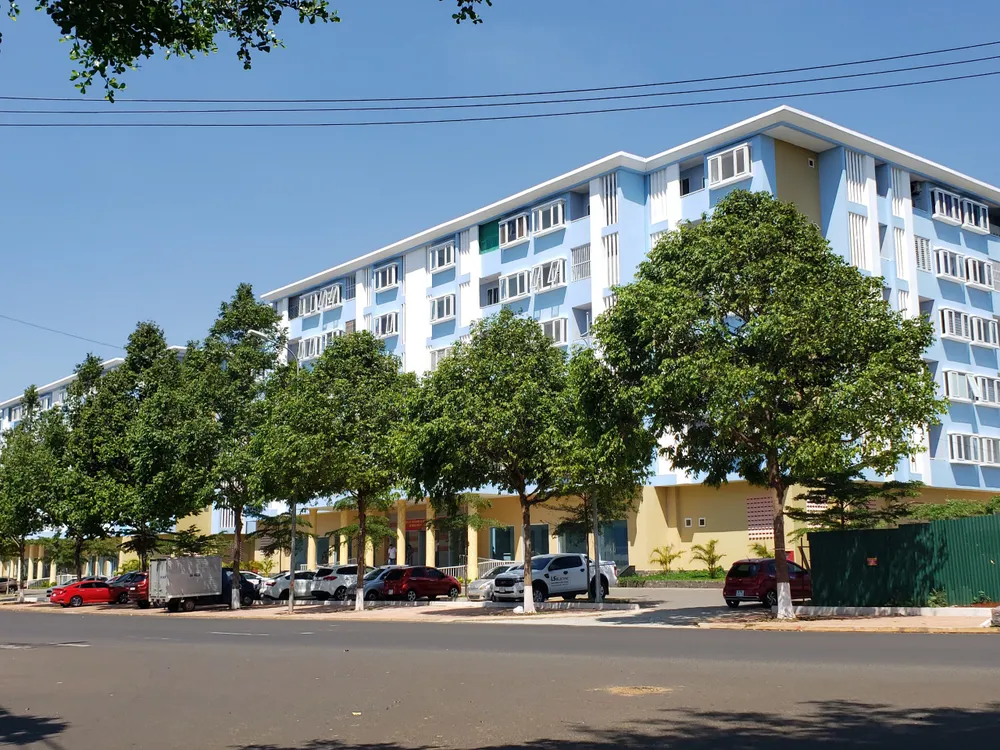
During the recent Covid-19 pandemic, leaders in Ho Chi Minh City began to seriously look at housing for tens of thousands of workers who were compelled to return to their hometowns because accommodation facilities within the city limits were unaffordable as well as did not guarantee prevention of their families from the virus.
At the 6th meeting of the People's Council of Ho Chi Minh City, many opinions were shared among leaders of the People's Committee and the Department of Construction about the development of affordable housing projects, including the construction of social housing for the poor. It is time now to understand why there have been such lengthy delays in social housing programs despite the eagerness of the Government to provide this essential facility to the people.
In the last three years, there have been no less than 15 documents directly responding to enterprises, about 20 documents exchanged between departments, and about 10 meetings held to solve major housing problems. At the recent housing program monitoring session of the People's Council of Ho Chi Minh City, the Department of Construction said that the investment procedures for building social housing projects is more difficult than commercial housing projects, which has made businesses hesitate to invest in these projects.
The reasons are that in addition to having to go through the same procedures as commercial housing projects, social housing construction projects also have added procedures specific to this program. Social housing projects are exempt from land use levy but must complete the procedures for determining financial obligations before carrying out the procedures for land use levy exemption.
Besides this, social housing projects also have to carry out procedures to appraise the selling price, rent price, rent purchase price, and finally confirm the product for selling the social housing to the people. Because the procedures are more difficult, and take more time to perform, businesses have shied away from investing in social housing projects.
A representative of the Department of Construction said that these lengthy procedures are what makes businesses hesitate to invest in social housing construction projects. He said that there are currently 47 housing projects over an area of over ten hectares that must spend 20% of land to build social housing. Among them, there are a number of projects that have not been compensated for site clearance, and some projects that have not been built by the investor.
After assessing the results of housing development in Ho Chi Minh City in the period 2016 until 2020, the People's Committee of Ho Chi Minh City acknowledged that the housing area per capita increased from 1.67 square meters per person in 2015 to 20.8 square meters per person in 2020, meeting the demand for accommodation of additional population and improving the existing housing area. During this period, the city strongly developed various types of social housing, with 19 projects completed and put into use, while supplying the market with 1.23 mln square meters of floor space. However, the number of completed apartments are still not able to meet the huge demand of the people.
In view of housing development in the period from 2021 until 2030, Ho Chi Minh City is determined to introduce mechanisms and policies for all economic sectors to participate in investment in housing construction, especially in social housing, and allocate capital to building social housing for lease, rent or purchase. Because social housing projects have not met the huge needs of the people, especially civil servants, public employees, and poor working people, it is imperative for the city to move forward with plans immediately.
If housing development programs, including social housing, do not meet the needs of the people concerned then it will be difficult for workers to feel secure in working in the city. The labor force comes to work in the city from difficult provinces and their basic needs of housing must be met.
Recently, Mr. Phan Văn Mãi, Chairman of the People's Committee of Ho Chi Minh City, said that he is determined to shorten the procedures for social housing projects from 500 days to 133 days, along with changes in other policies, to attract social resources for this segment. It is time for people and businesses to commit to specific actions and the government must also move its apparatus so that businesses can support these projects for people to avail of comfortable living conditions to work in the city that will eventually contribute to the socio-economic development of Ho Chi Minh City.




















